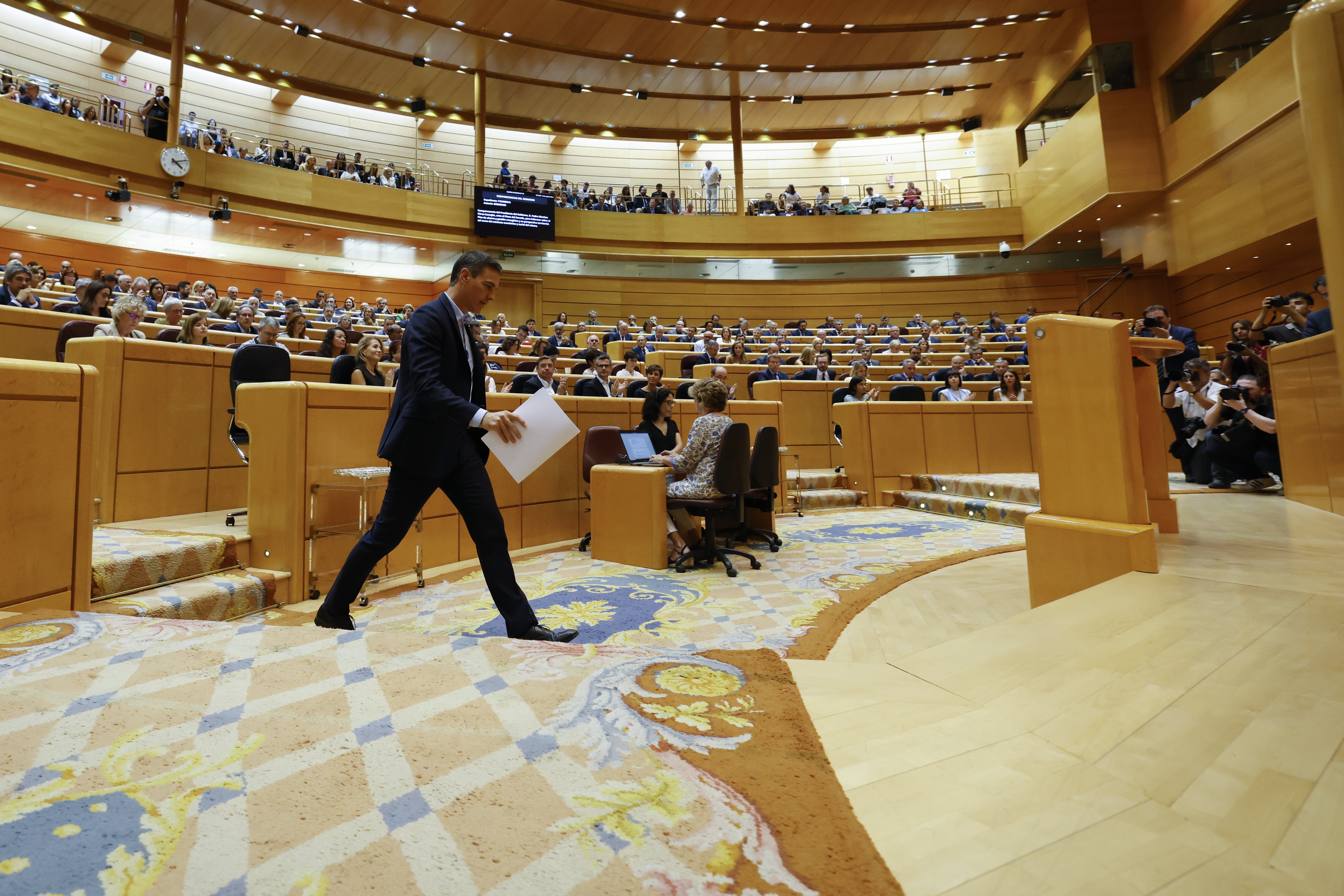It was supposed to be a special Spanish Senate debate on energy, intended to confront approaches to this issue, but quite predictably, it turned into a tense duel, full of criticisms and accusations that readies the starters in the 2023 electoral race in Spain. The first public face-off between prime minister Pedro Sánchez (PSOE) and opposition leader Alberto Núñez Feijóo (PP). The fact is that the Spanish PM made the most of the unlimited time at his disposal (two hours and twenty minutes against the 26 minutes that the PP leader had) to gain an advantage and, without doubting, he launched himself into an attempt to dismantle and wear down the solvent image that the PP leader carries after five months in the post. In his reply to the People's Party leader, the head of the Spanish coalition executive took direct aim at his opponent and Feijóo's plan to mitigate the effects of inflation, asking: "Is it insolvency or pure bad faith?"

With the rhetorical knives out, Sánchez accused the PP of "criticizing everything, even those measures that you copy from conservative, liberal and social democratic governments, such as the Iberian exception that you call a scam", in reference to the EU-approved gas price cap allowing an electricity price reduction for Spain and Portugal. He went on, accusing Feijóo of "dedicating his speech to attacking the government, scaring Spaniards, and not presenting any serious proposal". To finish the job, he accused the Galician of "not understanding the future of the country" and complained that the PP's only interest, first with the pandemic and now with the Ukraine war, is "trying to undermine and overthrow the government of Spain". And in the face of this he concluded that "he will fail just as Casado failed in his attempt to bend the will of the executive".
Sánchez on the coming winter: "There'll be no apocalyptic scenes"
In his initial speech, the Spanish PM wanted to reassure the public in the face of the complicated winter that is looming. "Recommendations will be implemented," he said, but "there will be neither drastic measures nor supply cuts nor butane rationing nor the apocalyptic scenes evoked by the right and extreme right." Even so, he acknowledged that it will be a winter of uncertainty: "We don't know what will happen, nobody knows what will happen and Putin probably doesn't know what steps he will take either" before adding that "what we are doing is preparing for the worst, which is Russia turning off the gas tap."
As he had also done on Monday at an event inviting members of the public to the Moncloa government palace, Pedro Sánchez railed against the power and influence of large banking and energy companies on politics and people's lives. He was even more forceful today: "We will not let any company or person profit from this crisis no matter how powerful they are, no matter how illustrious their surnames are or because of their kinship with a political leader." According to the head of the executive, "some have believed that Spain is theirs and we will show them that it is not so". The executive is fully focused on the idea that it has been pursuing for months, which it wants to use in the 2023 election race: "In Spain democracy exists and the will of the people rules, which is expressed in the Senate and Congress. It is not decided in Madrid cliques". However, with the right rumbling, he stopped short of drawing blood: "We have no animosity towards large companies, they are a source of pride for the country even though we think they should help".
Assistance to electricity-intensive industries
Sánchez had also saved an announcement to make in his speech. The Iberian exception will also help electricity-intensive companies that consume large amounts of gas. The mechanism will be applied to them temporarily and, as he detailed, "it is an exceptional measure requested by the industry and which will benefit sectors such as ceramics, chemicals or textiles and which represent 20% of the industrial GDP". The PP immediately accused Pedro Sánchez of copying another of their proposals.

